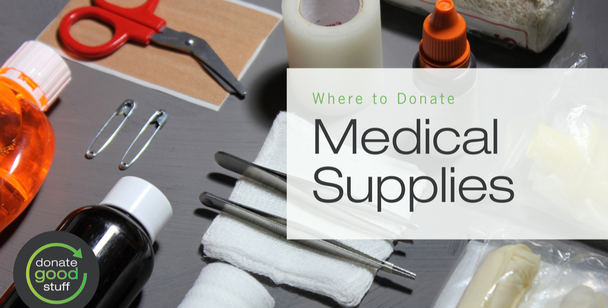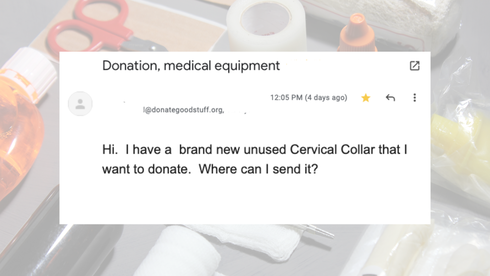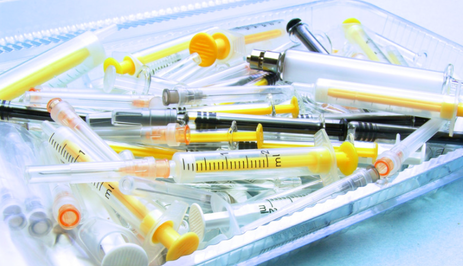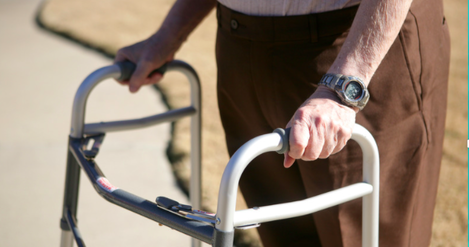|
Each year, millions of dollars of unused medical supplies are thrown away as expensive and contaminated trash. At the same time, a huge disparity exists. Many people go without critical supplies and equipment because of financial circumstances, high costs, and lack of health coverage. Used or leftover medical supplies and equipment can be a tricky thing to find a home for. They are not the kind of thing you can just bring to any donation center, medical facility, or nonprofit. Sometimes, they require special handling or disposal. However, they are often much needed and valued supplies so taking a moment to determine if they can be donated and to find the right home for them is absolutely worthwhile. We compiled a list of resources to save you time searching across the web and digging through information about what and where you can donate medical supplies and equipment. What Medical Supplies & Equipment Can I Donate?There is a broad range of medical supplies, everything from gauze and bandages, to wheelchairs and supportive and adaptive equipment. You may choose to donate and it's important to know that different organizations may request a very specific or very broad array of items. Some items that may be donated are:
You should always double check the condition, packaging seals, age and expiration for anything that you want to donate. Most organizations cannot accept expired, damaged, or opened items, but there are exceptions. Bottom line: Always check first and don't donate it if it isn't requested. General Guidelines for Donating
Medical Supplies You Should Not DonateSome medical supplies should not be donated because of the risk of injury or contamination. These require special care in disposal which may vary from city to city and state to state. 'Sharps': Needles and Syringes: These should never be thrown directly into the trash and are often required to be disposed of at hazardous waste or other special collection sites. They should always be placed in a rigid plastic container (like a laundry detergent bottle) with a lid. You can check with your trash hauler, city, or county. Safe Needle Disposal has information for each state. Medications: Prescription medications cannot generally be donated if they are opened, expired or close to expiring, or controlled (i.e. opioids, etc). They require special disposal, as well. They should not be thrown directly into the trash and are often required to be disposed of at hazardous waste or other special collection sites. Check with your local board of pharmacy for proper disposal. Contaminated supplies: Any supplies that have been contaminated and cannot be completely disinfected should not be donated. Proper cleaning and disinfecting may vary depending on the type of equipment or item, so always check before donating how the item should be cleaned. Where Can I Donate Medical Supplies? |
Recent PostsCategories
All
Archives
June 2024
|
Copyright © 2024 - Hero Management, Inc









 RSS Feed
RSS Feed